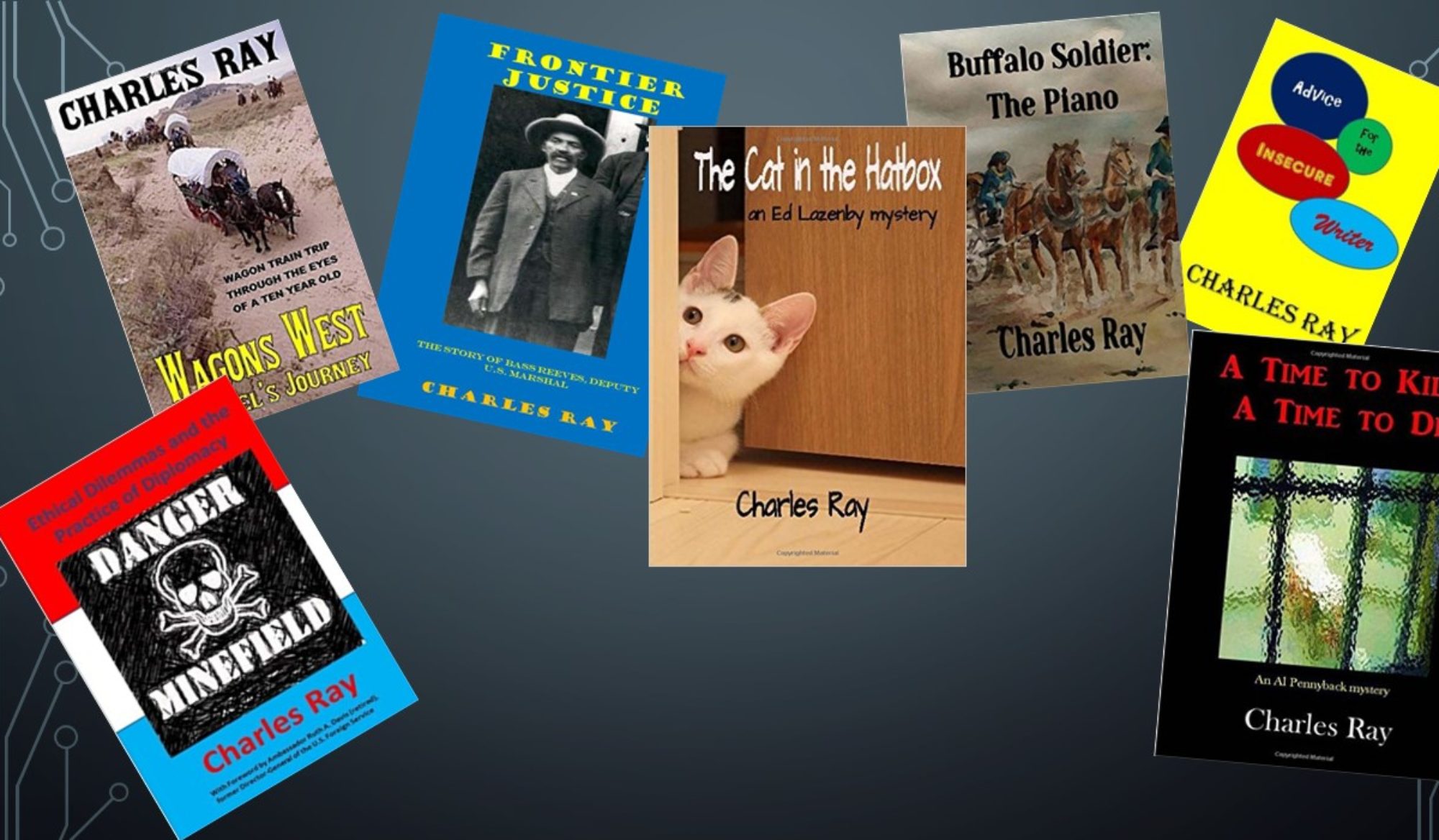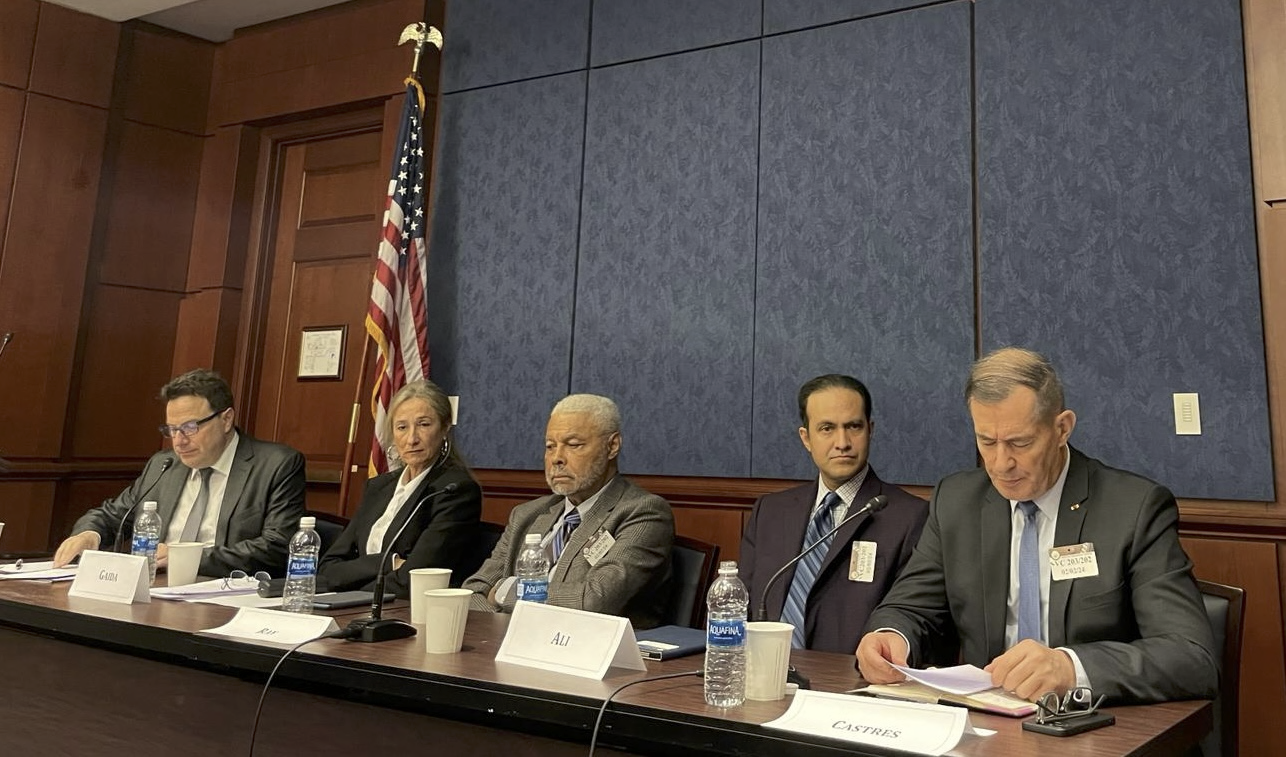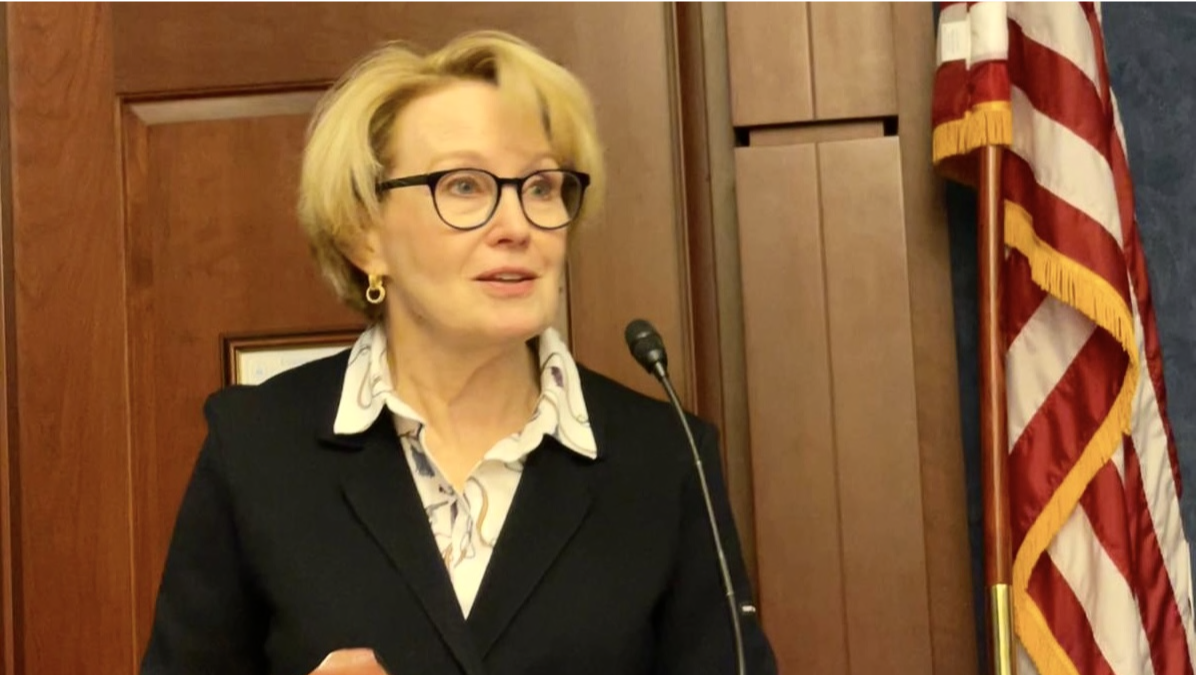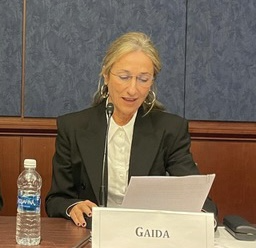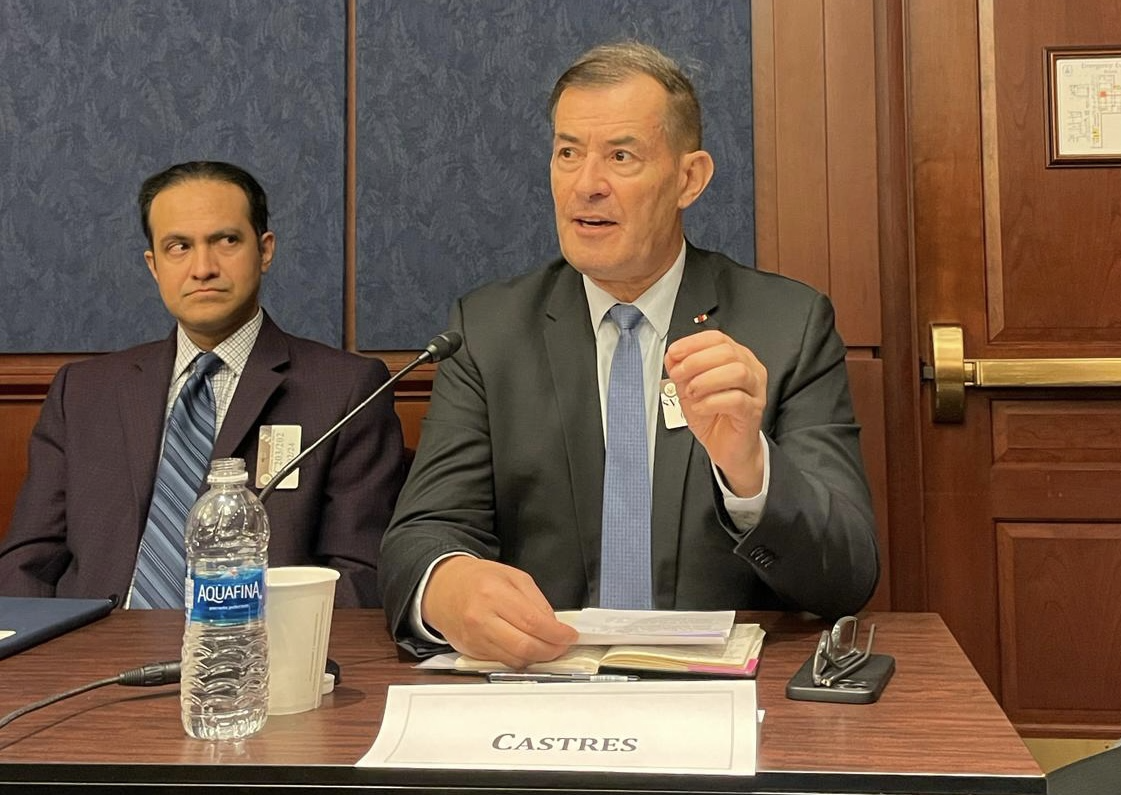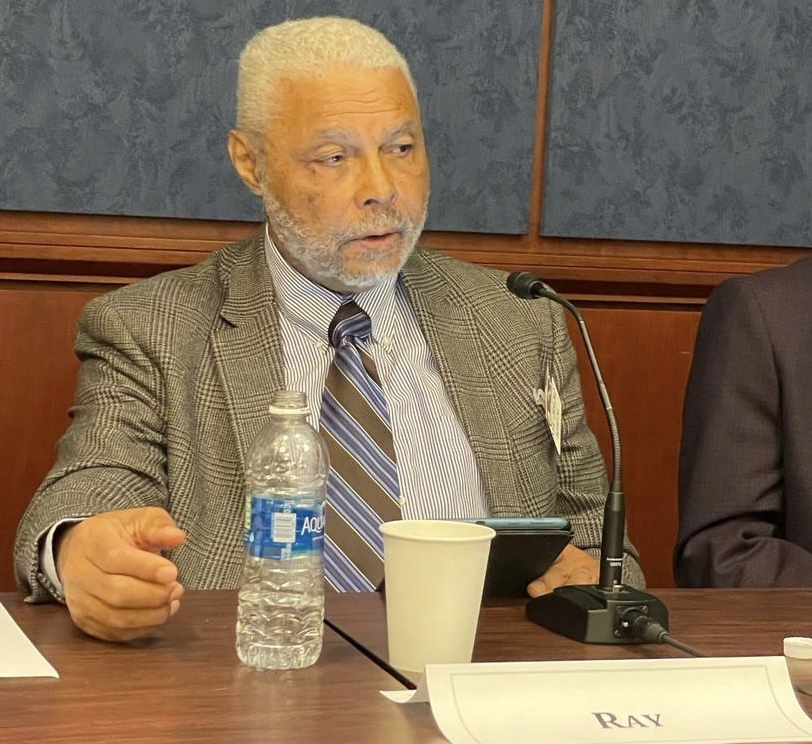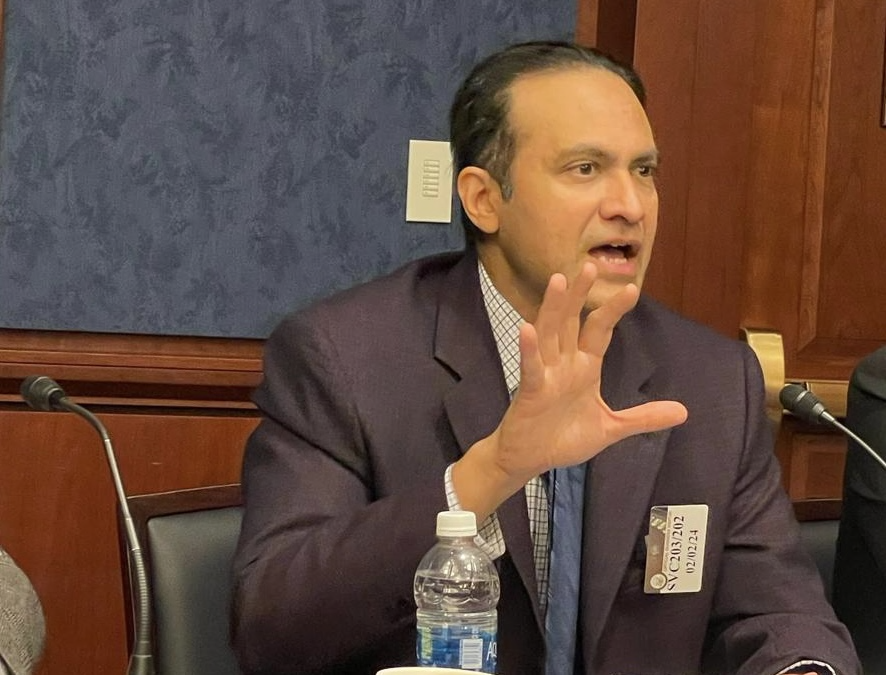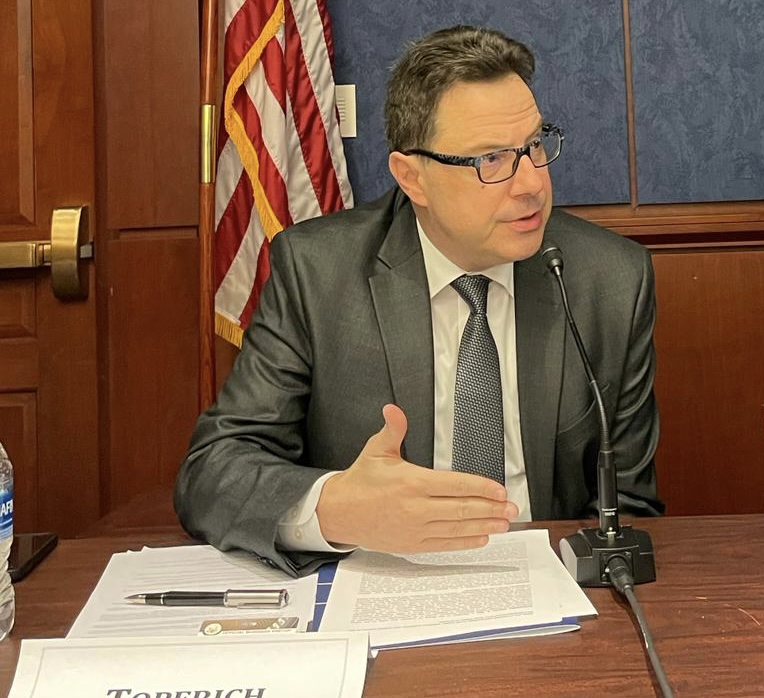Mfundo Msimango, HBCU-ACC Secretary | 10 April 2023
Ambassador Charles Ray was a guest speaker to
the HBCU-Africa Correspondents Corps. Prior
to his retirement from the foreign service, he
served as the U.S. ambassador to Cambodia and
Zimbabwe.
What are the best ways for student journalists to approach
senior government officials with interview requests?
The best way to approach senior government officials is to find the email address of the agency protocol office and query them with your name, affiliation, and the reason you wish to interview the official. For retired officials, it’s a bit more difficult unless you know what organizations they might be affiliated with. In my case, for example, I am chair of the Africa
Program of the Foreign Policy Research Institute, and can be contacted by completing the Press Contact form [on its website]. It’s helpful if you are as detailed as possible in your query regarding the specific areas you have questions about.
What are the expectations that senior government officials
have of student journalists when they are conducting
interviews? Are they different from those of seasoned
journalists?
Most senior officials will not expect student journalists to be as savvy as a seasoned journalist, but they will nonetheless expect the same degree of professionalism, e.g., understanding the rules on things like off the record, not for attribution, etc. They will also expect professional demeanor and conduct, such as being properly dressed, being on time, etc.
What are the ethical and moral challenges that student
journalists might encounter when interviewing senior
government officials? How should they mitigate them?
The challenges, really, are the same that journalists face when interviewing any subject. Being honest with your questions and intent (there are some minor exceptions when doing investigative pieces), and being honest about what you plan to write. Also, honoring commitments. For example, if you’re told something ‘off the record,’ to help you better understand a situation, you must not use that information in your article.
How should a student journalist prepare to conduct a one-on-one interview with a senior government official on national security or foreign policy? Are there any tricks of the trade?
Prepare your questions well in advance. Many officials will, in fact, ask for the questions in advance of the interview date, so they can be prepared with the appropriate information, get the required clearances and approvals, etc. Have an idea of how you plan to write your article, and prepare your questions accordingly. If during the interview, an answer causes you to think of a question that wasn’t on your list, explain that and ask it, keeping in mind
that the interviewee is under no obligation to answer. As a student journalist, my advice is to avoid ‘gotcha’ questions, no matter how tempting it might be. This is a good way to get an interview terminated and your name flagged as someone not to talk to in the future. Tricks of the trade? Listen actively and take good notes. If you wish to record, get the interviewee’s okay in advance. If you’re told no recording devices—which is often the case in some government offices—honor that restriction, and use your mind and a sharp pencil.
Don’t be afraid to ask for a repeat of anything you didn’t catch clearly, to make sure you get it right.
There are a lot of competing needs when it comes to
conducting interviews with senior government officials (e.g.,
privacy; security; transparency; openness; truthfulness). How
should student journalists balance those needs?
The same way you would with a relative or friend, or any other person. In interviews with government officials, you’ll be told if something impinges on security, so honor that, as there are legal implications to dealing with classified or sensitive information. Everyone is entitled to personal privacy, even public officials to a degree (although less than a private citizen). Be solicitous of your interviewee’s privacy and you’ll earn their respect and gratitude. As to transparency, openness, and truthfulness, these are things that you, as a journalist, should always be.
Like this:
Like Loading...


